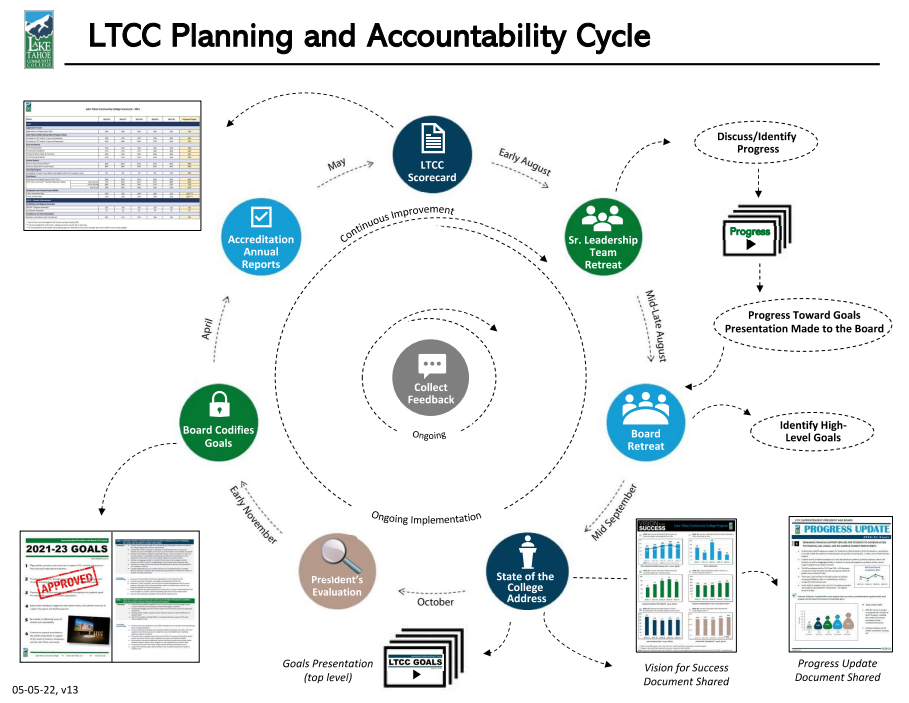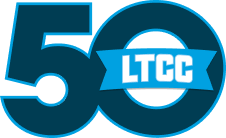Integrated Planning
Lake Tahoe Community College (LTCC) processes for planning and accountability are designed to provide for continuous improvement and ongoing implementation based on feedback and data collected from multiple constituencies and through multiple avenues, including governance groups, planning documents, comprehensive program review, student success data, and discussion with campus stakeholders.
The LTCC Planning and Accountability Cycle document codifies existing processes that are already in place and does not represent a change in the practices and processes of the last five years. It outlines the planning cycle at the Superintendent/President and Board of Trustees (Board) level.
Planning and accountability are important factors in the long-term success of the college and are focused on data and feedback methods that ensure a variety of opportunities for participation and engagement with the campus and the larger community. Ongoing implementation of goals and initiatives, as well as continuous improvement efforts, are enhanced by the regular practice of communication via methods that are required, such as accreditation reports, and methods that are unique to LTCC, such as the State of the College Address.
The Educational Master Plan, the Facilities Master Plan, and the Student Equity and Achievement Plan are planning documents that outline goals and strategies and are required documents for the accreditation process. Accountability documents such as the LTCC Scorecard, Vision for Success Metrics, and the Institutional Self-Evaluation Report (ISER) highlight success as well as areas for improvement.
Planning and accountability efforts are also tied to goal development. The Strategic Goal Development document outlines how LTCC's vision, mission, and beliefs; student success data; planning documents; and feedback from various stakeholders help to inform the goal development process for each academic year. Consultation with the Board on high-level goals is incorporated into the goal development discussions at the annual Senior Leadership Retreat. This process of feedback allows for the annual goals to be developed, with specific strategies and outcomes identified for each overreaching goal, for Board review and approval each year. These efforts are also shared widely with the campus and community each year during Convocation Week and are used in the evaluation of the Superintendent/President.
Planning, accountability, and goal development help highlight important key milestones and provide for a common understanding of LTCC priorities. By clarifying the Planning and Accountability Cycle and the Strategic Goal Development process, the attached documents can be used in governance discussions, planning initiatives, and accreditation efforts.
Long-Range College Plans
- Superintendent/President and Board of Trustees 2022-24 Goals
- Educational Master Plan 2018
- Facilities Master Plan 2021-2027
- Technology Master Plan 2012-2017 (Currently developing an updated Technology Master Plan)
- Campus Master Site Plan 2020 - 2030
Other Resources
Institutional Planning at LTCC
Pictured below is the LTCC Planning and Accountability Cycle

